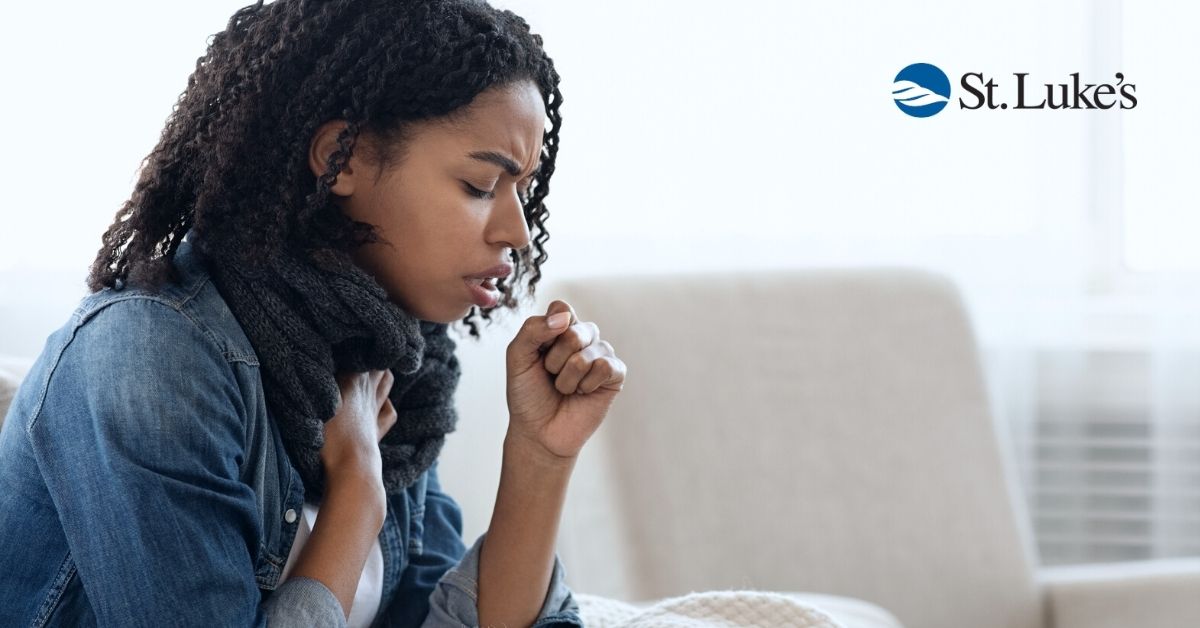Treating Common Fall Illnesses

Taking Care of Yourself When You’re Sick
With the height of cold and flu season upon us, an occasional runny nose or sore throat is expected. That’s why you should know just how to nurse yourself back to health.
The health experts at St. Luke’s are here to share some tips to help you identify the source of your sickness as well as some tips to help you feel better.
The Seasonal Flu
The seasonal flu is a common respiratory infection that can be caused by several different strains of the influenza virus. While symptoms may vary in their severity depending on the affected person, some of the most commonly experienced symptoms include:
- Fever
- Chills
- Body aches
- Diarrhea (in children)
- Fatigue and tiredness
- Headache
- Runny nose
- Sore throat
- Stuffy nose
- Vomiting
Treatment
If you come down with the flu, try these tips to help manage your symptoms:
- Stay home to protect others from getting sick.
- Get plenty of rest.
- Drink plenty of water and other clear liquids.
- Avoid close contact with others in your household.
- Talk to your primary care doctor to see if they recommend taking an antiviral medication.
The Common Cold
The common cold is another frequently experienced respiratory infection that can be brought on by a number of different viruses. However, the most common cause of colds is the rhinovirus. Frequently experienced symptoms of the common cold include:
- Body aches
- Runny nose
- Coughing
- Headaches
- Sneezing
- Sore throat
Treatment
If you’ve come down with a cold, the following tips can help your body recover:
- Catch up on your rest.
- Drink plenty of water and other fluids.
- Gargle with a warm saltwater solution.
- Take a warm shower or bath.
Seasonal Allergies
Allergic rhinitis, more commonly known as environmental allergies or hay fever, happens when something in your environment triggers an allergic reaction. More often than not, environmental factors that trigger this reaction include:
- Pollen
- Mold
- Dust
- Pet dander
Although the severity of allergy symptoms can depend on your sensitivity to these allergens, the following symptoms are commonly experienced by those with environmental allergies:
- Coughing
- Dark circles under the eyes
- Itchy eyes, nose, or throat
- Runny or stuffy nose
- Sneezing
- Irritated, red eyes
- Sinus pressure
- Headaches
Treatment
If your seasonal allergies are acting up, try some of the following tips to help you to find some relief:
- Keep the windows of your home and car closed.
- Wash your bedding weekly.
- Vacuum and dust your home weekly.
- Use a dehumidifier in your bedroom.
- Keep furry pets off of your furniture.
- Wash your hands frequently.
- Change your clothes when coming home from being outdoors.
- Wear sunglasses when spending time outside.
If any of your symptoms persist for more than 10 days, contact your primary care doctor for additional treatment suggestions.
Immediate Care Options at St. Luke’s
If you need immediate attention and your primary care provider is unavailable, Aspirus St. Luke's offers a variety of immediate care options where you can be seen without an appointment. To learn more about Aspirus St. Luke's immediate care offerings, visit our website.
If you or a family member is experiencing a life-threatening injury or illness, please call 911.
